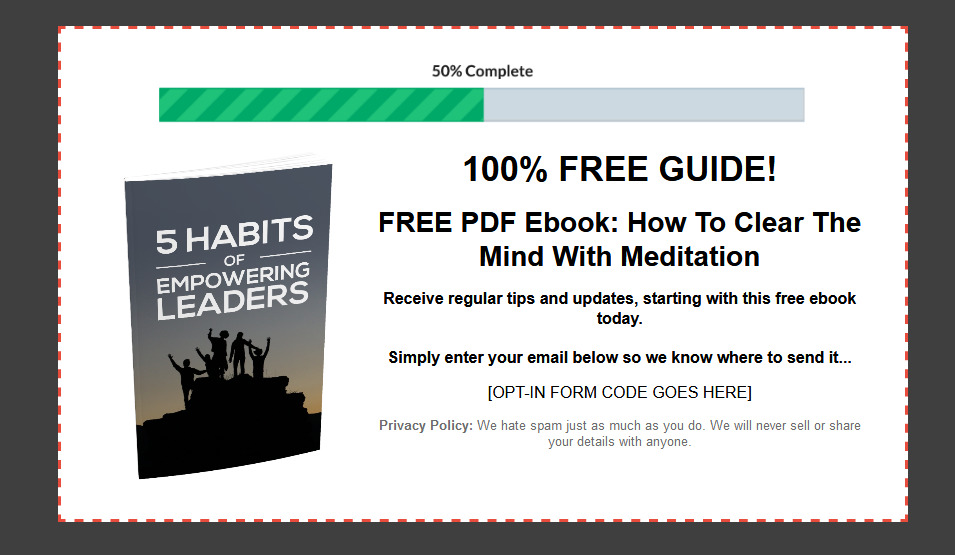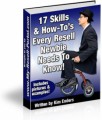Salespage Snapshot

Sample Content Preview
Imagine then for a moment that you have just learned your company is in serious debt, and that there are going to need to be lay-offs. You have two options now: one is to panic, shout, and potentially even blame your staff (this is an example of poor EQ, which is discussed in a moment). The other option is to remain calm and collected, and to deliver the news in an honest but optimistic manner.
Your choice here is extremely crucial, because it will define the way that your team reacts as well. When you are in a financial crisis as a company, the last thing you need is for all your staff to stop working properly. When staff panic, they of course do stop working properly.
That’s why it’s the leader’s job to remain calm, and to communicate to their team that it is okay to be calm.
Incidentally, this is also one of the traits that is considered to be “alpha” by many – the ability to control your own emotion and to make the decision that is best for the group as a whole.
Making Quick Decisions
Already we can see that the truly empowering leader is nothing like the caricature version that we discussed at the start of this report. Shouting and blustering just creates ill feelings, which are not conducive to a highly productive and happy team.
In fact, your position is one that should be taken with a noble calmness. Your role is to sacrifice yourself, by putting your emotional needs secondary to the group. That means remaining totally calm, when the world is collapsing around you – so that your team can continue to work to the best of their ability.
Likewise, it is also your job to take responsibility when things do go wrong. It is this concern that in fact prevents many people from becoming natural leaders.
Let’s step back for a moment and look at a mundane, domestic example. Let’s imagine that you are shopping for food with your partner, when they ask which flavor of soup you want for dinner. A common response is to say “I don’t mind.”
What does this really mean? It usually means that you want the other person to be happy, so they should choose.
BUT in doing this, you have actually just shifted responsibility onto that person. Now it is up to them to choose soup that will result in your evening being a good one or a bad one.
And perhaps the real reason you didn’t want to make that decision, is because you didn’t want them to be unhappy with you!
Perhaps you can relate, or perhaps you can just imagine how this might play out. But ultimately, that desire to be “liked” or “in the good books,” has actually placed more pressure and stress on the other person AND made you seem indecisive and a weak leader.
Now this same thing plays out in the office, every time you are asked to make a decision about purchasing, about branding, or about marketing… and you defer or delay. We umm and ahhh often because we don’t want to take responsibility and we don’t want to commit to what might turn out to be a wrong decision. But strong leaders NEED to take responsibility, and they need to take decisive action that will inspire their team.
Empathising
One of the most important traits of any great leader is emotional intelligence or “EQ.” This term refers to your ability to understand the emotions – and therefore motivations – of other people.
As a leader, this will give you the ability to understand why someone might be motivated to complete the work you set, or why they might not feel inclined to complete it at all.
Likewise, it means that you can better choose the correct language and phrasing to get the desired response out of someone. This is particularly important – as the way you deliver an instruction can completely change its tone and thus its likelihood of being followed through on.
This is something that a LOT of leader’s lack, and it can lead to huge difficulties within office environments.
The good news is that emotional intelligence is something that can be trained. It effectively amounts to sensitivity.
But how do you go about measuring such an abstract concept? Well that all depends on who you ask and in fact there are three separate ‘models’ of EQ each with their own views on the subject.
The Ability Model
The ability model comes from psychologists Salovey and Mayer who describe EQ purely in terms of ‘ability’. In this case it is the ability to ‘perceive and integrate emotion’ and the ‘capacity to reason about emotion’ all with the end goal of enhancing personal growth. It also encompasses the ability to manage emotion – i.e. not fly off the handle at the slightest provocation and to know how to calm others down.
Ability model-based tests are the most similar to IQ tests but in some cases, the answer is more subjective, though guided by ‘social norms’.
Other Details- 10 Articles (TXT, DOC)
- 1 Ebook (PDF, DOC), 7 Pages
- 1 Audio (MP3)
- 4 Graphics (PNG)
- 1 Squeeze Page (HTML)
- Year Released/Circulated: 2020
- File Size: 10,845 KB
License Details:
You’re granted master resell rights, resell rights or to resell with personal use rights.
You may add this product to your PAID membership site
You may giveaway the product as a bonus when people buy through your affiliate link
You may edit the included opt-in / squeeze / landing page
You may giveaway the eBook for Lead Generation purpose
No, you may NOT edit the contents of the eBook
No, this product does NOT include private label rights. You are granted Master Resell Rights only














